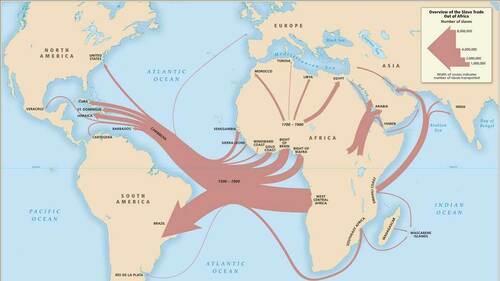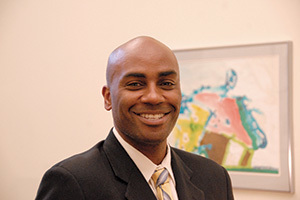
Ernest Morrell, professor of Africana studies and English, the Coyle Professor in Literacy Education and director of the Center for Literacy Education at the University of Notre Dame, collaborated with fellow subject experts to create the first capstone course on the African diaspora for AP Seminar high school teachers and students. The curricular content — which includes interactive maps, databases, lesson plans and other resources — is now available to educators on Athena.

AP Seminar is an interdisciplinary course aimed at teaching critical thinking and research skills, and its format and flexibility lend themselves to introducing complex topics like the African diaspora. College Board piloted the content for the course during the 2019-20 academic year with 10 teachers, and, as a member of the AP Seminar Development Committee, Morrell and fellow researchers worked with teachers to facilitate student conversations and refine materials.
The course offers teachers and students tools to explore themes such as:
- What is the definition, meaning and importance of the African diaspora?
- What initiated the forced dispersal of Africans outside of Africa?
- Which events/nations/regions were involved in the slave trade?
- Across the diaspora, whose stories get told, and who decides?
- Resistance, rebellion and resilience
- Cultural connections through the arts
Morrell said that while long-existing racial inequities have been exacerbated and brought to the fore by the coronavirus pandemic and protests against police brutality, the broader importance and urgency of this new course content lies in the vastly understudied size, impact, growth and value of the African diaspora as a site of study and engagement for young people.
“Were it an independent nation, the African diaspora would form the third-largest country on Earth; taken together with the continent of Africa, that is more than 20 percent of the world’s population,” he noted in an introductory webinar for teachers. “By 2050, UNICEF estimates that 40 percent of all births will occur in sub-Saharan Africa.”
In working with Morrell and other experts, Rushi Sheth, executive director of the AP Capstone Diploma Program at College Board, said he has come to appreciate the many different themes and applications of the African diaspora. “This breadth is reflected in the resources teachers have posted, from interactive maps on transatlantic slave voyages to an AP Seminar syllabus with a ‘crunk feminism’ theme,” he said. “It is so much more than a history; it is resistance, arts, culture, language and more.”
Morrell added that this initiative is the first major course content offering of its kind, and the researcher-teacher partnership with College Board offers a chance to introduce students to the African diaspora in ways that pull them in, engage them, make them feel connected and increase their intercultural understanding. Additionally, Morrell noted the course creates space for connecting African American studies to a large and growing global framework.
“Globalizing all of our disciplines and inquiries in ways that include the continent and African diaspora is a move we will all need to make in our courses,” he said.
Learn more at www.teachathena.org.